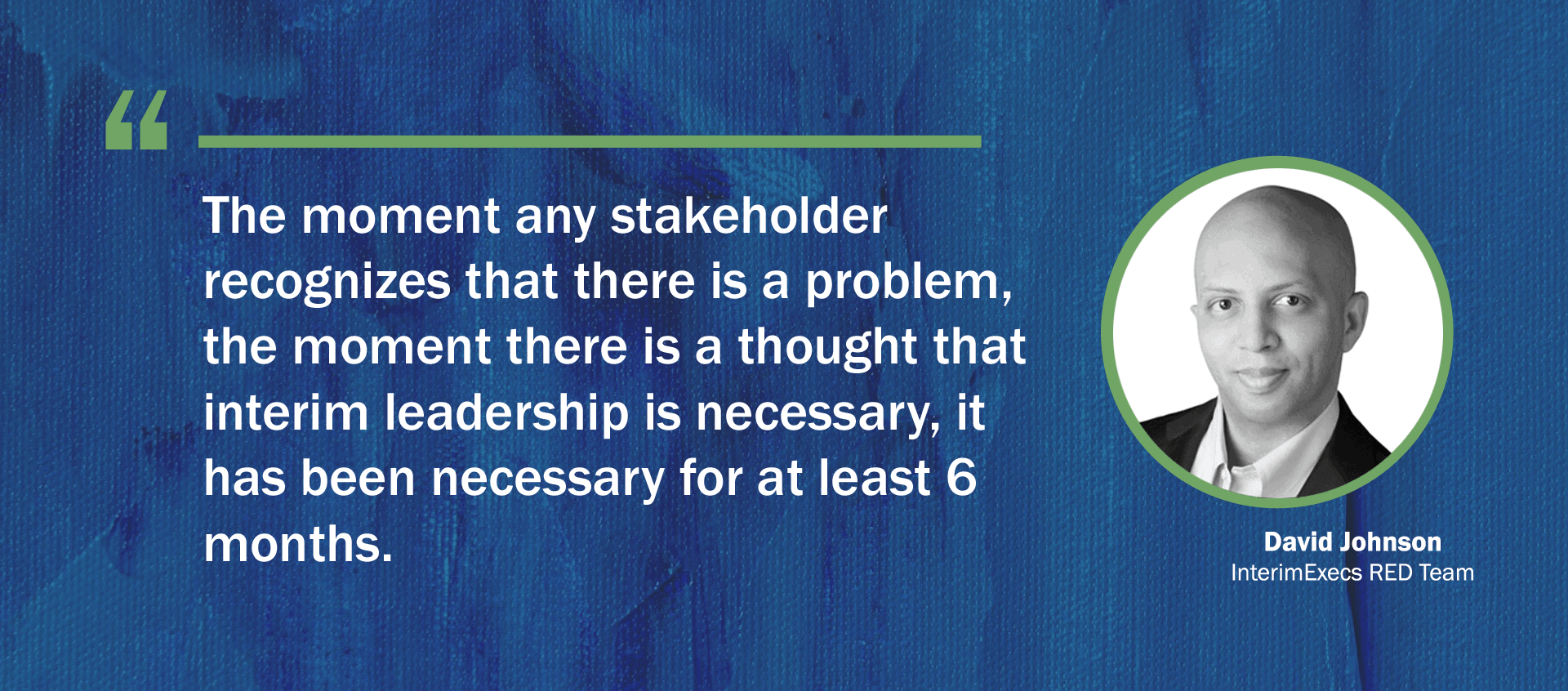When is an Interim Manager the Right Choice?

The Ultimate Guide to Interim Management — Chapter 2: When is an Interim Manager the Right Choice?
02: When is an Interim Manager the Right Choice?
“A lot of companies don’t understand when to fully use us,” said one experienced interim executive. “We are there to bring change, to shake things up, and to deliver projects that internally couldn’t be done before.”
And then they do something a traditional full-time executive likely wouldn’t even consider: They leave. They ultimately work themselves out of a job.
That’s because a true interim executive is wired for change. For challenge. For making a difference.
Once they’ve achieved their goals at one company, they are ready to move on to their next challenge.
Change Management Experts
Companies facing a period of transition or unexpected challenge — anything from the abrupt departure of a C-level leader to a market disruption — turn to interim managers for help.
Unlike new permanent hires, an interim executive can be onsite on short notice — sometimes in as little as 48 hours — and will stay for a defined period of time or until the goals have been met. Then they move on to the next challenge.
And, unlike management consultants, an interim executive will go beyond analyzing a company’s needs and developing a plan. An interim will stick around to implement the plan, rallying the management team, board, suppliers, customers, and other stakeholders to meet the challenge.
The ultimate goal of an interim executive: to have an immediate impact and develop effective solutions that will ensure the long-term health of the organization.
Interims represent the ultimate end-state of the gig economy, allowing organizations to express specific high-level needs and find a tailor-made executive who brings far fewer complexities and risks than a traditional permanent executive.
In addition to filling the immediate need to take executive control due to a vacancy in the organization, Interims add value in many types of circumstances, bringing deep domain expertise to difficult business challenges or opportunities. These may include:
● Expanding into unfamiliar territory (geographies, markets, products, etc.)
● Successfully scaling with rapid growth or expansion
● Retaining high performance/quality during hyper-growth
● Breaking out of internally-focused management and decision-making
● Addressing stalled growth
● Filling gaps in the management team (bandwidth, skills, or ability to solve major issues)
● Planning and executing a turnaround, often when the survival of the company is at stake
● Developing succession plans
● Correcting poor financial performance
● Innovating and optimizing processes to address quality issues or scale limitations
● Developing realistic strategy
● Reinventing the customer satisfaction/experience
● M&A and acquisition integration
● Driving innovation and fresh thinking in products or services

The Complete Guide to Interim Management
-
- 01 What is an Interim Executive?
- 02 When is an Interim Manager the Right Choice?
- 03 When an Interim Executive is Not a Good Option
- 04 What’s the Difference Between an Interim Executive and a Consultant?
- 05 How do Interim Execs Approach Assignments?
- 06 Interim Executive Recruitment: Making the Right Match
- 07 The Process for Engaging an Interim Executive
- 08 How to Prepare Your Company for an Interim Leader

Qualities of a Successful Interim Executive
The most successful interims share common traits:
▶ They have a proven track record of success and extensive experience across companies and industries. That means they know what works, what doesn’t, and how to get things done.
▶ They exhibit a bias towards action. They take a short period of time to gather the data needed to confirm key assumptions, understand initiatives, and develop a plan. Then they put that plan into action.
▶ Interims are change agents whose primary mission is to help their clients overcome thorny issues.
▶ They stay cool under pressure. Crisis management is what they do.
▶ They understand that their success will be limited by dysfunction. As a result, they hold themselves, their direct reports, and other management team members accountable for their commitments and results.
▶ They are great teachers, clear decision-makers, and strong communicators. All of that is necessary when the organization is operating at speed.
▶ They are motivated to leave the company with a plan for future success. That may include helping to hire, onboard, and mentor their full-time replacement.
When Do Companies Need a Strong Temporary Manager?
Companies contract with interims when they need leadership expertise they don’t have in their general management structure. And they don’t have time to waste waiting to hire an experienced manager who will fill that role permanently. They need help fast.
That might be because an executive died or left the company abruptly, leaving a yawning leadership gap. Or the organization might need an experienced manager to oversee a specific project or someone who can plan and implement a turnaround for a company in crisis. In other cases, the right interim manager will help a company through a merger or acquisition, starting at due diligence and continuing through acquisition integration.
From crisis management to project management, today’s gig economy means there is an interim executive with the specific skills you need.
InterimExecs RED Team (Rapid Executive Deployment) is an elite team of rock-star executives who have been vetted and are ready to start a new interim assignment immediately.
Continue Reading: Chapter 3 – When an Interim Executive is Not a Good Option
FREE DOWNLOAD
Top Trends Driving the Growth of Interim Management
▶ Introduction
▶ 1: What is an Interim Executive?
▶ 2: When is an Interim Manager the Right Choice?
▶ 3. When an Interim Executive is Not a Good Option
▶ 4: What’s the Difference Between an Interim and a Consultant?
